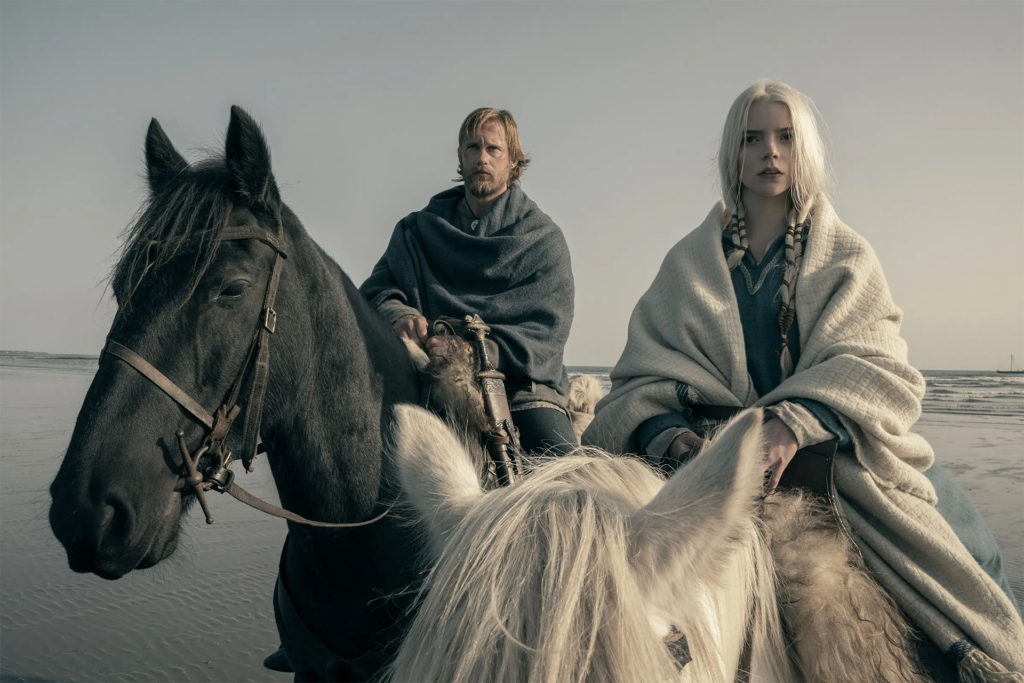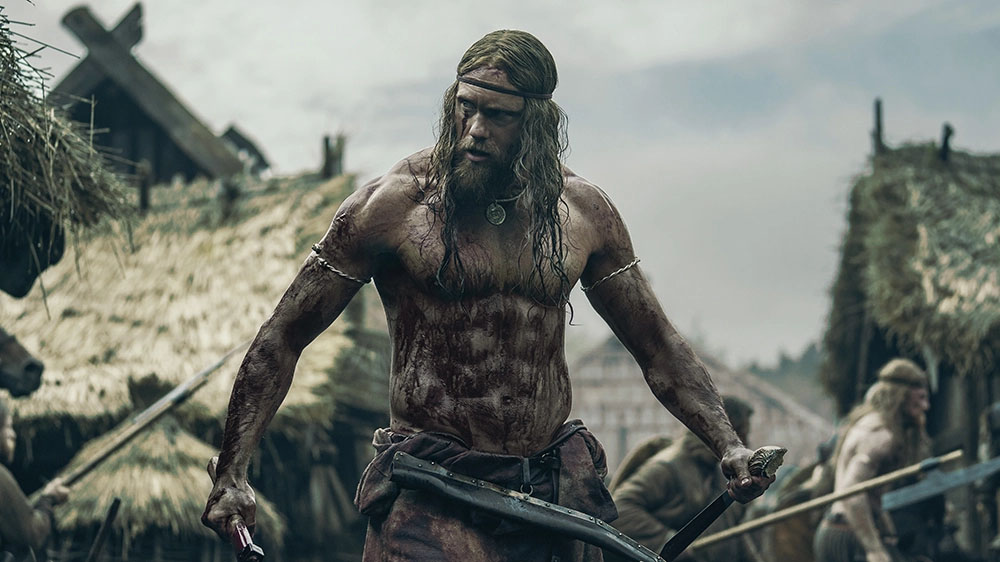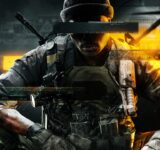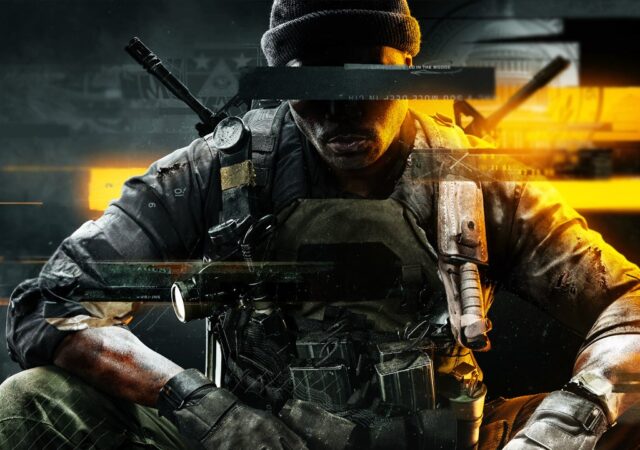Whether or not you will love The Northman probably depends on your familiarity with director Robert Eggers’ body of work. Known for creating movies imbued with a feverish atmosphere and a unique approach to the supernatural, Eggers takes a crack at mainstream, big-budget films with The Northman. Though it is still a far cry from any conventional movie out in theaters nowadays, The Northman is relentlessly focused in a way that robs it of the level of exploration that we saw in Eggers’ previous films. Still, it is most certainly one of, if not the best Vikings stories put to screen in the last decade or so.
Amleth (Alexander Skarsgård) is a prince, son to king Aurvandil War-Raven (Ethan Hawke). When his father is shortly murdered by his uncle Fjolnir (Claes Bang), Amleth flees and vows to avenge his father. Decades later, now a hulking Berseker who raids villages for plunder, Amleth is reminded of his need for revenge when he hears some of the slaves captured in the raid are being sent to Fjolnir’s outpost in Iceland. Posing as a slave, he journeys to Iceland, meeting the Slav potion maker Olga (Anya Taylor-Joy) in the process. Once he starts working in the outpost, Amleth plots his revenge, seeking out a mystical soothsayer (Bjork) who sends him on a quest to retrieve a deadly blade.

Amleth’s tale is not only over a thousand years old, but it’s also the inspiration behind the tale of Hamlet. The Northman is a much leaner, brutal take on the classic revenge tale.
Amleth is hardly one to philosophize: he is a man driven only by a singular purpose. Revenge has hollowed him out and taken over every inch of space in his mind. The scene where Amleth’s physical prowess is established as he mows down soldiers and civilians alike in a raid shows just how unforgiving the world of The Northman is. A review from The New York Times suggests that Eggers, with the help of cinematographer Jarin Blaschke, has rendered the scene into his own take on a Hieronymous Bosch painting. The film also treats mysticism as a natural part of this world. While properties like Vikings have also touched on mystical elements of Viking culture, this film goes a step beyond.
The major flaw of The Northman is that, like its protagonist, it’s so consumed by the plot and mysticism that it cannot rise above these elements and become a more holistic piece of art. The film does subvert the classic revenge story, but Amleth is swayed by this twist only momentarily, returning to his doomed path near the end of the story because he is convinced he has to destroy Fjolnir to save the lives and destinies of his unborn children.
The performances in The Northman are subdued, serving the greater story instead of drawing attention to themselves.
Skarsgård has long wanted to headline a Viking movie, and he proves just why he is the man for this job, portraying an animalistic man who later becomes thawed by love. Anya Taylor-Joy does well in portraying Olga’s cunning and defiance, subtly aiding Amleth as he carries out his morbid task. Willem Dafoe and Nicole Kidman have smaller roles in the film, as does Ethan Hawke, but they leave behind lasting impressions.
If you’re a casual moviegoer, you might be delighted by the masterful take on a simple revenge story.
The climax, which actually takes place inside a volcano, is simultaneously epic and fatalistic. In the end, you’re left wondering what the point was of this quest for revenge, as almost everyone is now in a worse-off position, other than Olga and her unborn children. Ultimately, The Northman is torn between its artistic flourishes and its more mainstream trappings. Still, stuck between that tug of war is an excellent film that’s better than most, if not all, feature films that have come out in theaters this year.






















